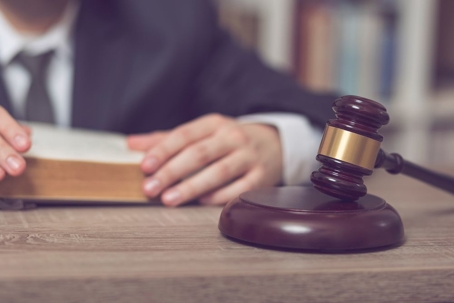One of the most common questions we hear from clients is “what’s going to happen at my hearing?” For a lot of people, this is their first time ever interacting with the criminal justice system and they do not really know what to expect. The idea of appearing in court can be intimidating and anxiety-inducing, so we wanted to highlight what goes on at different types of hearings.
Additionally, please feel free to read our other blog posts, including Common Terms in a Felony Case and Common Misconceptions in Criminal Cases for more of an in-depth look at criminal proceedings.
Felony Initial Appearance – This is the first appearance that a defendant charged with a felony will make in court. These hearings are typically fairly brief. A judge will read the charge(s) that the defendant is facing, address bail, and schedule the case for a preliminary hearing. A judge may also put into force a no contact order as it pertains to alleged victims.
Preliminary Hearing – This type of hearing only happens during felony cases and occur at the County or Municipal court to determine if the case will be sent to the Common Pleas court. The goal of preliminary hearings is essentially to determine if there is enough evidence that a felony has been committed. Some cases may be resolved at this hearing, and some cases may be bound over to the Common Pleas court for further proceedings. At preliminary hearings, witnesses may be called and evidence may be presented by the prosecutor. A defendant has the option of waiving the preliminary hearing, which automatically transfers the case to the Common Pleas court. Depending on the circumstances, waiving a preliminary hearing is sometimes the case strategy of the attorney so as not to record testimony of witnesses on the record.
Felony Arraignment – Arraignments on felony charges occur at the Common Pleas court after an indictment by a grand jury, a secret indictment, or direct presentment. The court is tasked with notifying the defendant of their pending criminal charges and the defendant will then enter a plea. The arraigning judge will assign a permanent judge who will oversee all future hearings regarding the case, address bond again, and schedule the case for a pre-trial and trial.
Misdemeanor Arraignment – This is the first appearance that a defendant will make in court when they are only facing misdemeanor charges. The judge will read the defendant their pending criminal charges and the defendant will enter a plea. Bond may also be addressed that this time, as well as any applicable no contact orders pertaining to alleged victims. In addition to entering a plea, the defendant will have the option to waive their right to a speedy trial, and a pre-trial hearing will be scheduled. Contact our office to see how you can possibly avoid having to appear at your Misdemeanor Arraignment.
Pre-Trial – A pre-trial hearing will be scheduled following a defendant’s arraignment. This is a day and time that the court specifically sets aside for your case to allow the prosecutor and defense attorney to discuss the facts of your case. Prior to the first pre-trial, the defense attorney will request discovery from the prosecutor, which typically contains the incident report, narrative(s) from the involved police officer(s), written statements, BCI reports, evidence receipts, and videos if available. A defendants involvement in a pre-trial is very minimal, but it is imperative that a defendant appears at all pre-trials to avoid any warrants issued for their arrest.
Trial – Trials occur when a resolution is not agreed upon at previous hearings. A case can be tried before either a jury or a judge. Trials can take anywhere from a few hours to a few weeks depending on the amount of witness testimony and severity of the charges. At trials, both the defense attorney and prosecuting attorney will call witnesses and present evidence to support their side. Both attorneys will have the chance to cross-examine the other side’s witnesses, and at the end, either the jury or the judge will render a verdict of “guilty” or “not guilty.”
Plea Hearing – A plea hearing will occur if a defendant agrees to plead guilty to a particular charge(s). At this hearing, the judge will formally read through the charge(s) that the defendant is pleading guilty to and the penalties for those charges. The defendant will sign a plea agreement form, which indicates the charges, maximum sentences, and agreed sentence. After this hearing, you may be referred to the probation department that will conduct a Pre-Sentence Investigation and the case will likely be scheduled for a separate sentencing hearing.
Sentencing Hearing – Typically, only cases in the Common Pleas courts are scheduled for separate sentencing hearings. These take place after a defendant either pleads guilty following a plea agreement or is found guilty following a trial. If the defendant plead guilty, the judge will render their sentence and it will be put into place immediately. A sentence may include, but not limited to, jail and/or prison time, house arrest, restitution, probation, and payment of fines and costs.
If you or someone you know is facing criminal charges in Ohio or Pennsylvania, feel free to contact our office at (330) 718-9499!

